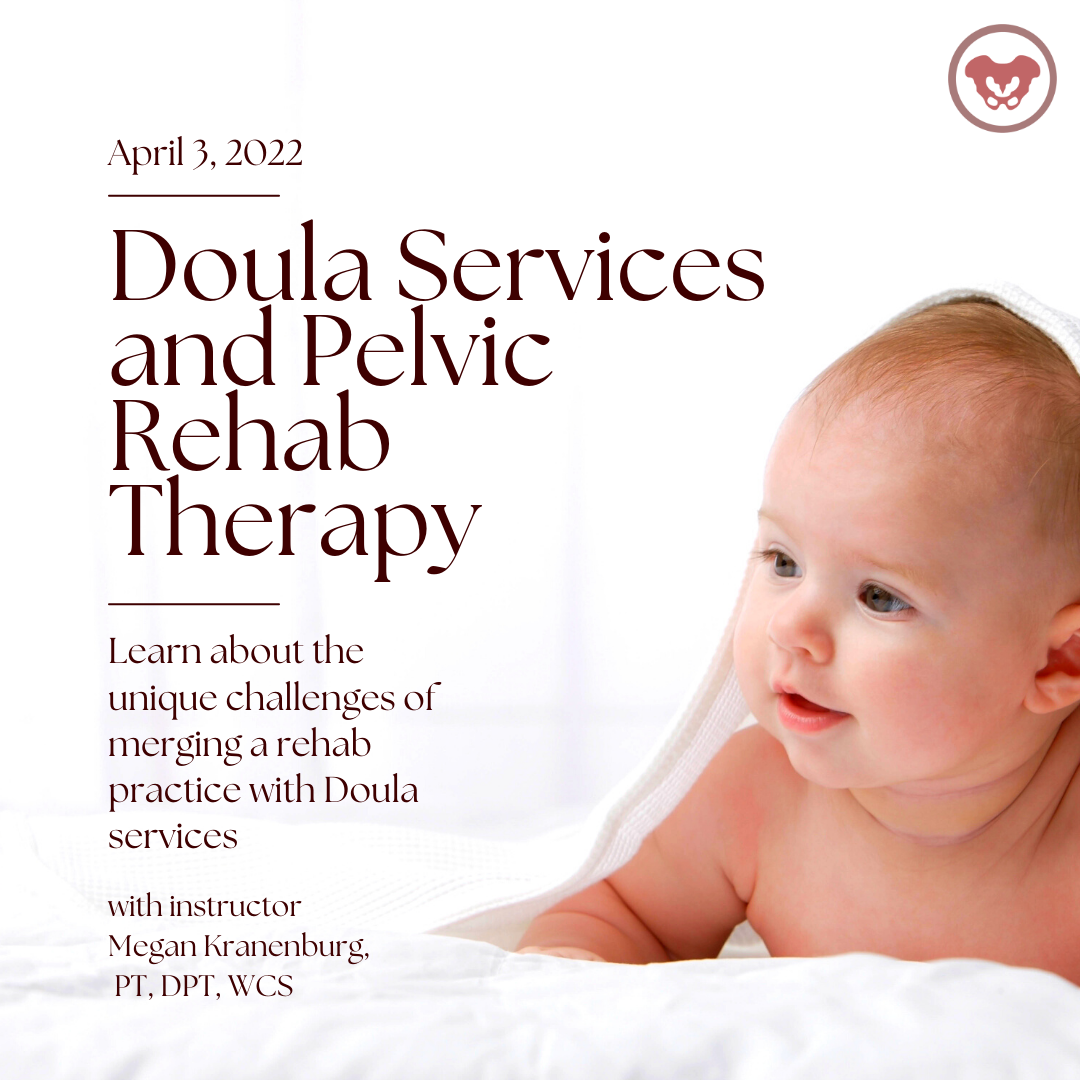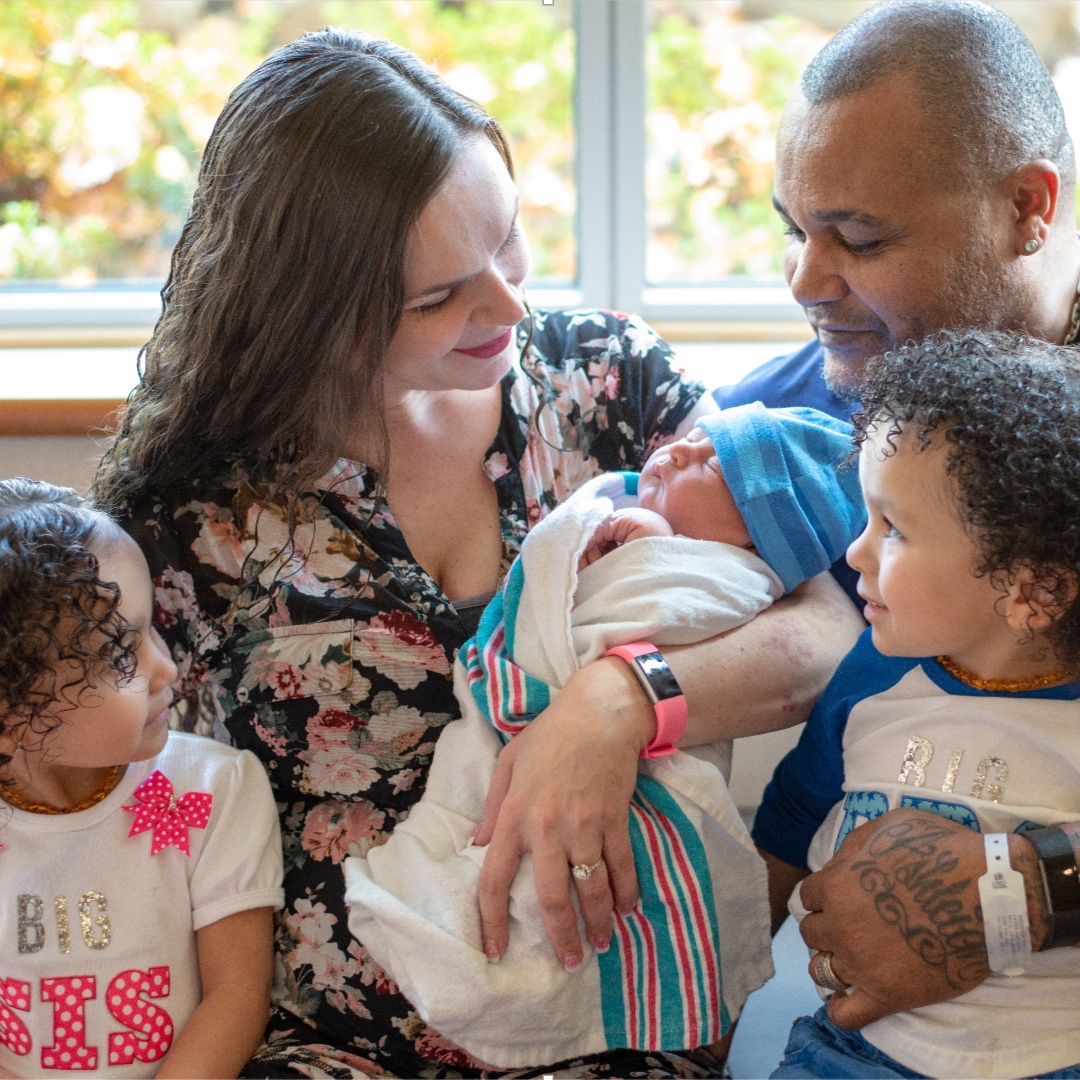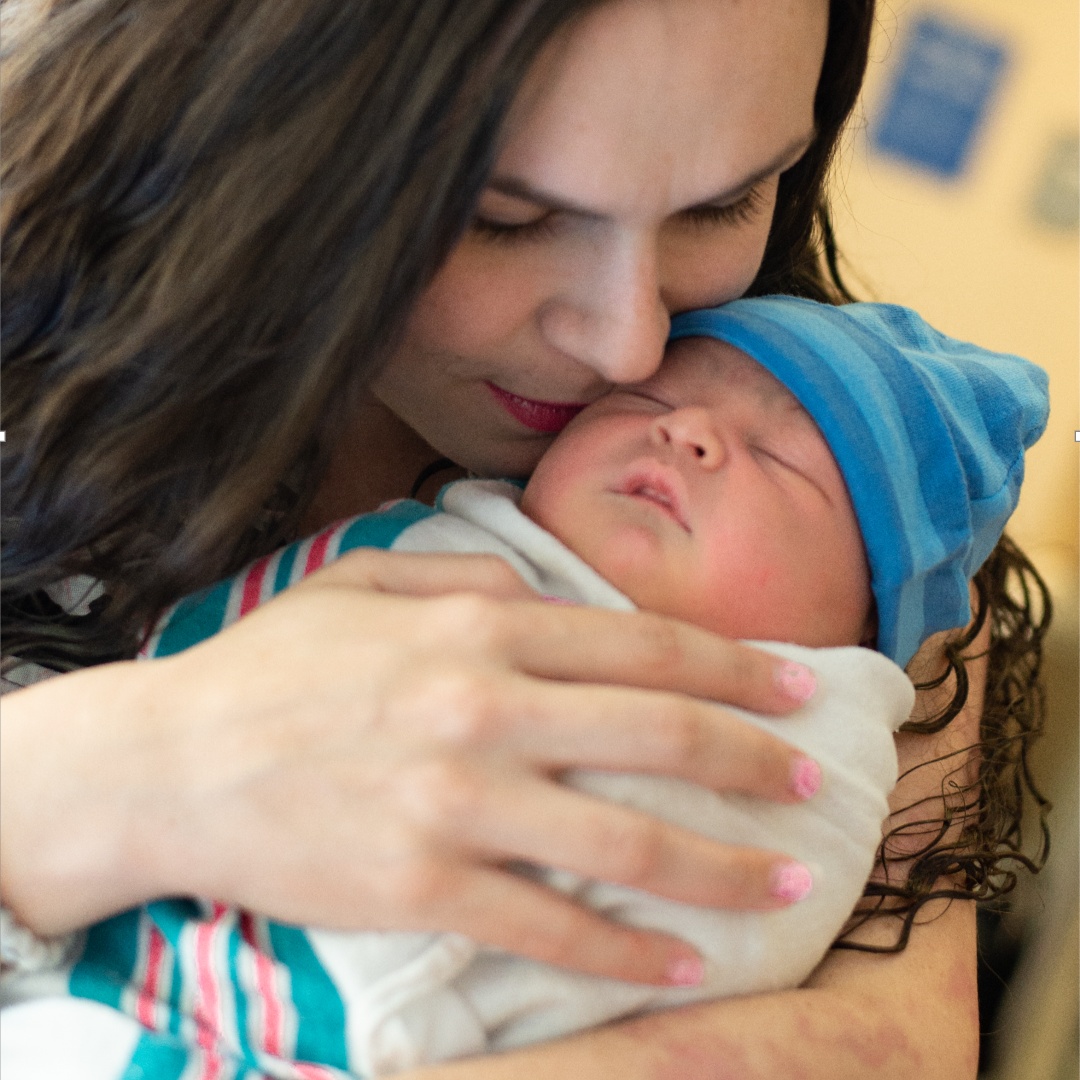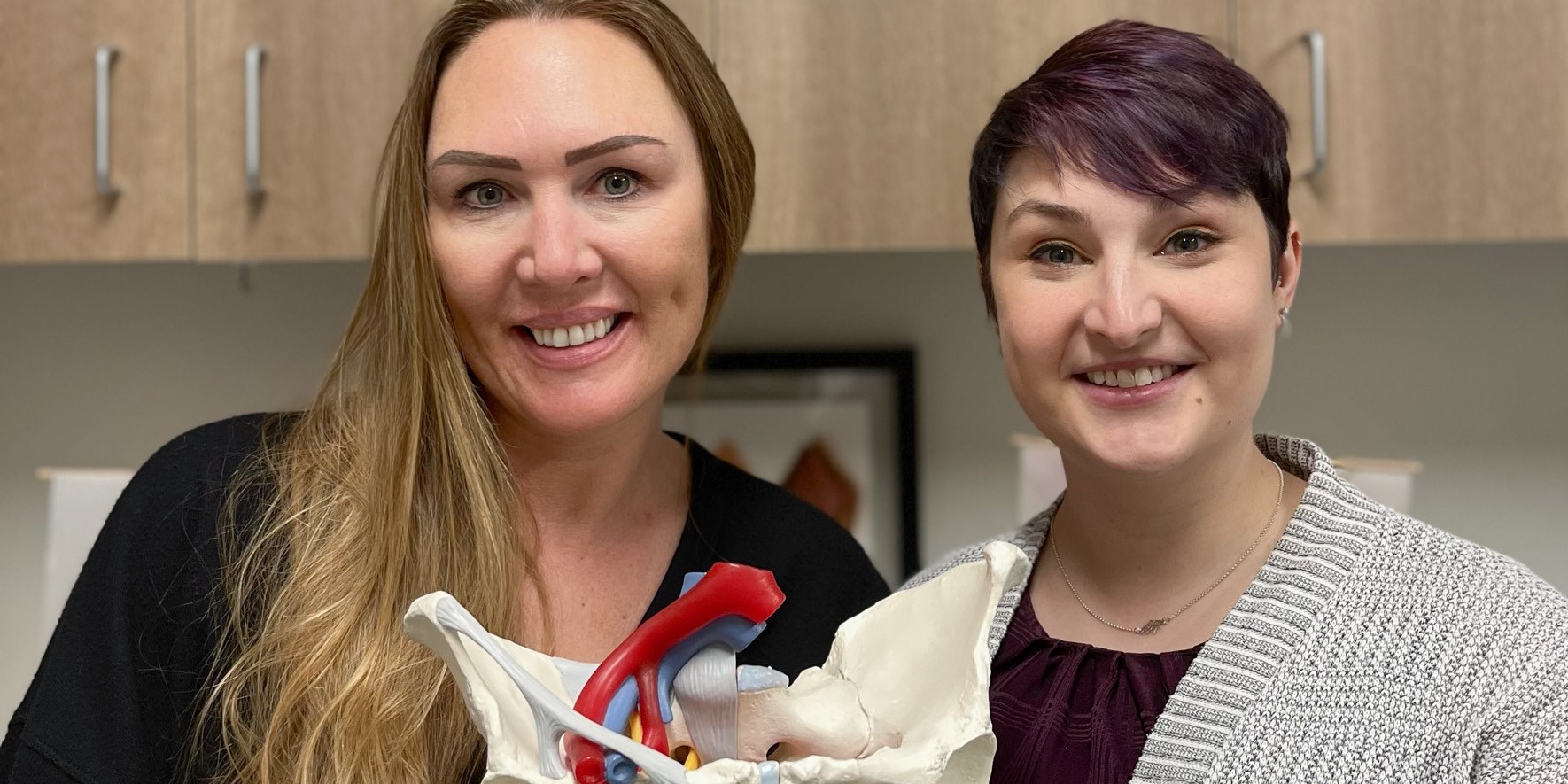
Megan Kranenburg, PT, DPT, WCS created the course Doula Services and Pelvic Rehab Therapy to present the unique challenges of merging a rehab practice with Doula services. Megan is a physical therapist who has balanced her solo outpatient pelvic health practice and Doula work since 2016. She lives and works in the nexus of Doula training near Seattle, Washington - which has provided plenty of opportunities to observe and participate in birth conversations and process the experience through the Physical Therapist's mind and heart.
As a pelvic floor practitioner, you may know that nearly 24% of women in the United States have pelvic floor dysfunction (as reported by the National Institutes of Health) and that this frequency increases with age. Childbirth can contribute to pelvic floor dysfunction, and it can be beneficial for pelvic therapists to know the doula's toolkit
So what is a doula? Doulas are often the first and sometimes the only people with whom a birthing person will feel comfortable discussing pelvic floor-related issues. Dona International defines a doula as a trained professional who provides continuous physical, emotional, and informational support to a mother before, during, and shortly after childbirth to help her achieve the healthiest, most satisfying experience possible.
Doulas can offer position ideas for comfort and labor progression, while their skilled hands can assist a mispositioned baby find its way through the pelvis. They can also support the birthing parent in learning how to push safely, effectively and protect the pelvic floor for birth. Doulas may hear several different symptoms of pelvic floor conditions from their clients through the perinatal experience. Two examples of natural birth/ pushing that a doula and pelvic therapist can spot or assist with include:
- Long hours of pushing can contribute to long-term muscle weakness and damage as well as lead to incontinence and pelvic organ prolapse.
- Uncoordinated pushing can result in weaker pelvic floor muscles that can last for several months postpartum. This weakness can also contribute to incontinence.
Similarly, Sara Reardon shared in a blog for Doula Trainings International a few symptoms of pelvic floor conditions that doulas may hear from their clients and can be looking out for throughout the birthing experience (1):
- Pain above the vagina that is sharp or achy and is exacerbated when rolling over in bed, or standing on while leg while getting dressed. This can be pubic symphysis dysfunction due to ligament relaxation.
- Pain in the back or lower back on one side that is sharp and is felt with a deep lunge, or when standing for a long time. This can be sacroiliac joint dysfunction due to ligament relaxation.
- Heaviness or pressure in the vagina that is worse at the end of the day, after exercise, or when standing. This can be a prolapse of pelvic laxity/varicose veins/swelling.
- Leakage of urine or poop, constipation, hemorrhoids and straining with bowel movements, incomplete bladder emptying, urinary urgency.
During vaginal birth, the baby passes through the ‘levator hiatus’ in the pelvic floor. This process can damage the fascia, muscles, connective tissues, and nerves. The levator muscles are stretched by 1.5 to more than 3 times their normal length as the baby passes through, depending on the size of both baby and pelvic floor muscle opening. (2) After this fascia is stretched, or torn, it doesn't heal like before. This fascia is attached to the bone and supports the urethra, vagina, and rectum.
Pelvic therapists and doulas can both make a big difference in the health of their clients. The following simple list is a very basic list that can be shared with clients that can make a difference in their healing.
- Breath - Inhale for the count of 2. Exhale for the count of 4. Repeat. Allow the exhale to be longer than your inhale.
- Nutrition - Choose nourishing whole foods. Collagen and mineral-rich foods, good quality protein, zinc, vitamin C are critical for tissue integrity and supporting new connective tissue repair.
- Hydrate - Easy & often. Don't wait until the end of the day to hydrate. Manage fluids throughout the day.
- Movement - Start with a good walk and build up from there. Spend time sitting on the floor with your baby and practice getting up from there.
- Sleep when the baby sleeps. Regular sleep and deep restorative rest are important for healing, recovery, and supporting mental energy.
- Each birth story is important and valid.
Doula Services and Pelvic Rehab Therapy is scheduled for April 3rd, August 6th, and December 10th this year. This is a four-hour, beginner-level course. Practitioner's who register are recommended to have completed Pelvic Floor Level 1, and the following reading:
- Preparing for A Gentle Birth, Calais-Germaine
- Reviving your Sex Life After Childbirth, Wallace
- The Birth Partner, Penny Simkin
- 5 Pelvic Health Lessons For Doulas From The Vagina Whisperer. The DTI Team. Doula Trainings International. Nov 5, 2018. https://doulatrainingsinternational.com/5-pelvic-health-lessons-for-doulas-from-the-vagina-whisperer/
- Pelvic Floor Muscle Damage. Australasian Birth Trauma Association. https://www.birthtrauma.org.au/physical-birth-trauma/pelvic-floor-muscle-damage/#:~:text=The%20levator%20muscles%20are%20stretched,and%20pelvic%20floor%20muscle%20opening.&text=In%20many%20women%2C%20these%20muscles,sometimes%20torn%20off%20the%20bone.

Elena Teare, the Communications Lead from Open Arms Perinatal Services sat down with The Pelvic Rehab Report to discuss their organization and annual fundraiser Labor of Love.
For our practitioners who are not familiar with Open Arms, can you tell me the organization?
Open Arms is the leading independent, community-based program in Washington State providing wraparound perinatal services to low-income families. We serve nearly 300 families every year and our award-winning program is not hospital-directed or based. Our trusted, community-centered approach always prioritizes the unique cultural, linguistic, and emotional needs of each client free of charge.
We provide services across four program areas: birth doulas, community-based outreach doulas (who provide in-home support up to two years of age), family support services, and lactation support peer counseling. We also train emerging birth workers to serve families in their own communities.
Our communities of focus are Black/African American, Somali, Latinx, and American Indian/Alaska Native communities of King, Snohomish, and Pierce counties. 87% of our clients are of color.

Can you share a success story?
In 2019, Asha was experiencing homelessness when pregnant with her second child. She heard about Open Arms through her shelter and soon was matched with Suad Farole, a Community-Based Outreach Doula. Originally from Somaliher through pregnancy, birth, and her daughter for two years. When Asha became pregnant with her son in late 2020, she knew she wanted Suad to be with her. In Asha’s words, “When I first decided to get a doula, I didn’t expect what I received. Suad was a true gift that not only oversaw the safety of my child as she came into this world, but she truly cared for my well-being and helped me to become the mother that I am now.”
What is the importance of the yearly Labor of Love event?
Labor of Love is our most important fundraising event of the year! It is a chance for us to engage our community and highlight the extraordinary outcomes our families achieve. When community members invest in the work that we do, they provide Open Arms with the flexibility to allocate dollars to any part of the organization that needs extra support. Given the uncertainty in today’s world, it’s important that we have the ability to respond quickly to the changing circumstances of our client families.

What makes you, the staff, volunteers, and the community passionate about this organization?
Our approach is evidence-informed, culturally appropriate, and community-centered and is effective in reducing medical interventions and the costs of perinatal care. By prioritizing the emotional needs of birthing people, our staff and volunteers set the stage for new mothers and parents to be strong and confident advocates for their children and families. By removing the cultural barriers to perinatal care by providing culturally competent care, we facilitate better community linkage to the health care system.
Our doulas and lactation consultants, as well as community of midwives, are committed to improving the health outcomes for birthing people and children of systematically underserved communities. Our families’ outcomes exceed those of Washington state and the country. As of 2021, 95% of our families give birth at full term and healthy birth weight, 85% avoid unplanned cesareans, and 82% are still breast/chestfeeding at six months.[i]
How do persons in need find your organization and what partnerships do you have?
Many of our families are referred from other organizations and service providers, and others find us through word of mouth in the community. Through our Perinatal and Lactation Support Collaborative, we have strong partnerships with the organizations like the Center for Indigenous Midwifery, Generations Midwifery Services, Global Midwifery Services, The Pacific Islander Health Board of Washington, and Rainier Valley Midwives. Additionally, the Program for Early Parenting Support (PEPS) and the Tubman Center for Health and Freedom are additional partnerships we have.

What is the awareness level in the community of Open Arms?
Open Arms clients are referred from other community partners and agencies who trust us to provide the best possible, culturally sensitive care. Over 30% of our referrals are from previous clients who seek our services again or refer friends and family.
How can people who are interested in supporting Open Arms donate or support the organization?
Interested supporters can make a gift to Open Arms online at https://www.openarmsps.org/get-involved/donate/make-gift-today/. To make an even bigger difference in the lives of the families we serve, community members can join our Baby Whisperers Monthly Giving Circle with a sustaining monthly gift. We also value gifts of time and welcome volunteers to assist with some of the behind-the-scenes logistics of the organization. People can stay up to date with our work and opportunities to get involved by heading to our site and subscribing to our newsletter or following our social media channels.

[i] Compared to King county’s rates: 91% of people give birth at full term; 93% are at a healthy birth weight, and 39% are breast/chestfeeding at six months.








































